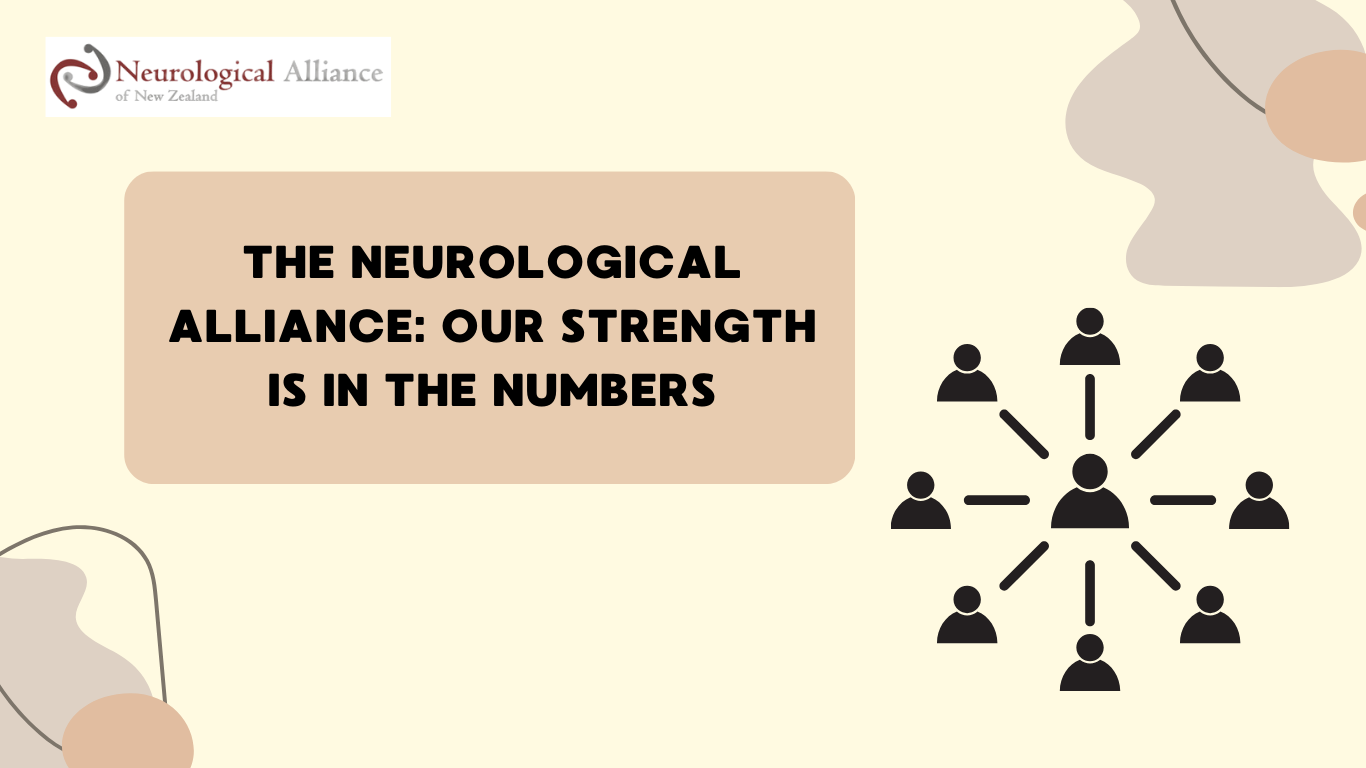
February 29, 2024 | Advocacy
Multiple Sclerosis NZ is a proud member of the Neurological Alliance along with 19 other allied organisations. The Neurological Alliance of New Zealand (the Alliance) was established in 1999 to provide a forum for organisations representing a neurological disease to:
In 2023, the members of the Alliance came together to develop a briefing for the incoming Minister of Health, Dr Shane Reti and fellow MPs with health portfolios to highlight the common issues that our organisations and the people we support face. Below you can read more about the issues we have raised with the government. We hope to meet with the Minister this year to be able to discuss the issues further.
Why Neurological Conditions Are Important
Neurological conditions place a significant burden on health and disability systems in Aotearoa and this is worsening. This includes pressure on social and health service providers in the non-governmental sector who are under-resourced and overstretched.
The social and economic cost of not responding is significant. Left unaddressed the number of people suffering and dying from neurological conditions will increase. Dementia alone is estimated to cost the country $2.4b in 2020 increasing to $6b by 2050, with the estimated cost of Stroke increasing from $1.1b in 2020 to $1.7b by 2038.
In addition to our ageing and growing population, Aotearoa is also in the unenviable position of having one of the highest and fastest increasing prevalence of obesity and diabetes in the world, which is contributing to the increase of some neurological conditions.
Neurological Alliance Priorities
The Alliance has pooled its collective knowledge to identify the four most important actions Government can take to optimise brain health, reduce inequities and better serve people in our communities with neurological conditions. Our priorities are based on feedback from our members and their experiences on-the-ground supporting people with neurological conditions, their carers and whānau.
Our Priorities
Neurological Alliance Priorities
Address health workforce shortages to speed up diagnosis and treatment.
There are chronic shortages in neurologists, specialist nurses, physiotherapists, occupational therapists, psychotherapists, speech language therapists and home-carers. NGOs also face challenges with recruitment and retention of specialist staff, as underfunding of the not-forprofit sector by Government undermines our ability to compete for staff within the wider health sector.
Increase funding for pharmaceutical treatment to improve quality of life
Pharmac’s complex decision-making processes, lengthy timeframes and strict rationing of pharmaceutical treatments is impacting the quality of life and in some cases, the life expectancy of people with neurological conditions. The Neurological Alliance is calling for full implementation of the recommendations from the Pharmac Review 2021.
Increase funding for community-based care and support services
The majority of people with neurological conditions live at home independently or supported by family whānau carers and rely on services and programmes delivered in their communities. Shortfalls in health funding for community-based workers and historical underfunding of the sector means that our members can only reach a fraction of people who need support. Family whānau carers are also burnt out and struggling to access respite.
Improve data collection on neurological conditions
There is no systematic collection of data on neurological conditions by the Government. Without data on prevalence and incidence of different neurological conditions the Government, Pharmac and Te Whatu Ora are not able to accurately plan service provision, workforce resource requirements, monitor the accessibility of services, or ensure equitable health outcomes. Data gaps also make it difficult to model the social and economic costs of neurological conditions and creates challenges for neurological research.
Read our full Briefing to the Incoming Minister here.
See the At A Glance Infographic here.
Visit the Neurological Alliance website: www.neurologicalalliance.org.nz